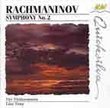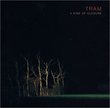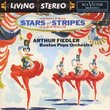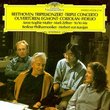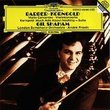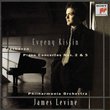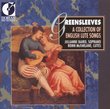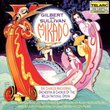| All Artists: Liszt, Arrau Title: 12 Transcendental Etudes Members Wishing: 0 Total Copies: 0 Label: Polygram Records Release Date: 10/25/1990 Genre: Classical Styles: Historical Periods, Modern, 20th, & 21st Century Number of Discs: 1 SwapaCD Credits: 1 UPC: 028941645821 |
Search - Liszt, Arrau :: 12 Transcendental Etudes
 | Liszt, Arrau 12 Transcendental Etudes Genre: Classical
|
Larger Image |
CD DetailsSimilar CDs
Similarly Requested CDs
|
CD ReviewsTranscendental Music Rudy Avila | Lennox, Ca United States | 05/08/2004 (5 out of 5 stars) "This album is the best showcase for pianist Claudio Arrau, a pianist who is not as well known as Horowitz, Glen Gould or Alfred Brendel, but who is extraordinary. The Transcendental Etudes are no picnic to play on the piano. The virtuosity needed for the polyphonic music calls for rapid raise in octaves, daring leaps and dexterity, usually of the left hand. It's a great work out for an ambitious pianist. Emotional, dramatic and intense, the music of Liszt has never been greater than on this recording which was originally an LP in the 70's. On the cover is the artist himself, Franz List.Franz Liszt (1811-1886) was a revolutionary new artist of the 19th century music scene. Along with Richard Wagner, he was considered a Prophet Of The Music Of The Future. To some, his dynamic music was too raw, too new and too strange to truly belong to the more aesthetic 19th century. Perhaps they were right. The influence of Franz Liszt on future composers attest to that. Liszt made a symphony orchestra out of the piano. The harmony, the grandeur and the multiple sounds that his Transcendental Etudes display are symphonic in style. The Transcendental Etudes, like their name suggests are studies in uplifting and virtuosic piano music. Arrau performs with great technique. No, he is not "attacking" the keys with his hands. He is full of fire and bravura, as the stormy music is meant to suggest. Liszt was the epitome of the free Romantic Era composer, whose music did not please anyone else better than it pleased him. Liszt had many affairs with prominent and beautiful women of the day - the courtesan Lola Montes, the elegant Countess Marie D'Agoult, with whom he had children, one which was Cosima who later married Richard Wagner. What a small world.This recording is sure to excite you. It's well-executed, dazzling and electrifying. You can sense how Claudio Arrau is exhausting himself as he plays all the difficult pieces. Perhaps the piano was not meant to sound like this. I, for one, do prefer the more graceful, lyrical and melancholy elegance of Frederic Chopin, but it's ok to get into the dramatics of Franz Liszt. There is so much to like about Liszt. Check out the Phillips Label recording "The Best Of Liszt" which contains some of his Hungarian Rhapsodies, including Number 2, which is the Loony Tunes theme surprisingly enough." A landmark recording in Arrau's exemplary career. Sancho S�nchez | Burwood, NSW Australia | 07/21/2002 (5 out of 5 stars) "Arrau championed Franz Liszt from a very early age, no doubt as a result of insights gained from his teacher and mentor, Martin Kraus, himself a pupil of Liszt. Arrau came to win numerous international prizes and laudatory reviews for his interpretations of Liszt over the years. This recording, made in 1974 and 1976 in rich analogue sound, was first released to coincide with Arrau's 75th birthday's celebrations. The interpretation masterly shows Arrau's deep understanding of, as well as feeling and admiration for, such a pivotal piano work of Liszt. This recording won the 1979 Liszt Record Grand Prix and has become both a benchmark rendition and a stable catalogue item ever since. Indispensable." The interpretation!!! Jose I. Ibanez Rivero | 05/24/2009 (5 out of 5 stars) "This is THE BEST interpretation of Liszt Etudes. Arrau was a direct descendant of Liszt, being a pupil of Martin Krause, himself a pupil of Liszt. The international prizes won by Arrau since his teens are not matched by other pianists. Other versions are not at this level, the worst being by Bolet.
You should listen the piano works of Schumann played by Arrau and the piano concerts by Beethoven (specially the Philips Arrau-Davies digital recording)." |

 Track Listings (12) - Disc #1
Track Listings (12) - Disc #1